When trying to approach songwriting systematically, most musician’s main question is, do you write music or lyrics first?
The answer to that question has to be boring and nuanced- “It depends on what type of an artist you are and what you are trying to express with your art.”
However, the discussion doesn’t have to end there.
In this article, I’ll try to cover some of the pros and cons of each approach and hopefully help you decide which approach better fits your creative personality.
Starting With The Music First
This approach is natural for most musicians. As we practice our instruments or jam, we might stumble upon something that screams at us to turn it into a song.

Any little spark of an idea can develop into a full song- you might come up with a cool chord progression, a groovy riff, or a lead vocal hook.
As you start layering instruments and coming up with the missing parts, you’ll eventually find yourself in a place where you have a pretty solid structure for a song.
After that, it’s only a matter of spicing it up with some drops, pauses, and interesting soundscapes.
Or you might just as well leave it rough and unpolished; anything goes when it comes to songwriting, really.
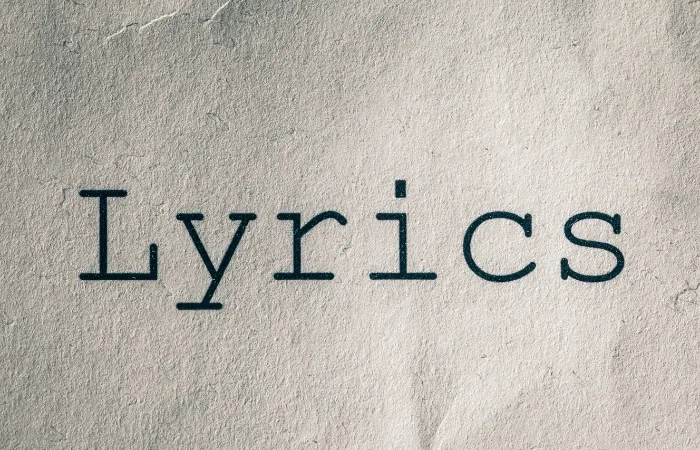
However, when you are done with the song idea, you might have difficulty coming up with the lyrics.
In your mind, the music is just the way it’s supposed to sound, and you don’t feel like changing it anymore, so lyrics need to fit that tight spot and conform to the melody and flow of the song.
Pair this with coming up with some actually meaningful lyrics, and you got yourself a real challenge.
Since you have started with writing the music first, it’s only natural that the lyrics should follow the mood of that music.
This might be helpful or limiting, depending on how you feel at that particular moment.
An ideal situation would be to genuinely need to write about something implied in the music – if the music is upbeat and energetic and you feel the same, you already have a sense of direction about how the final song will turn out.
Lyric Themes
Deciding on a theme of the lyrics is no easy task, and often you become overwhelmed with possibilities. Making the music be the judge is always welcome.
Now, the real challenge comes when you need to fit the lyrics to an already existing melody. Not only do you have to consider coming up with meaningful words and how those words are going to fit the melody.
Is it going to sound cramped? Are there too many words? Will they naturally roll off the tongue as they’re being sung?
These are all important questions to bear in mind when writing a song lyric.
It can get frustrating when you come up with a great line only to realize that it’s almost impossible to fit it into the melody.
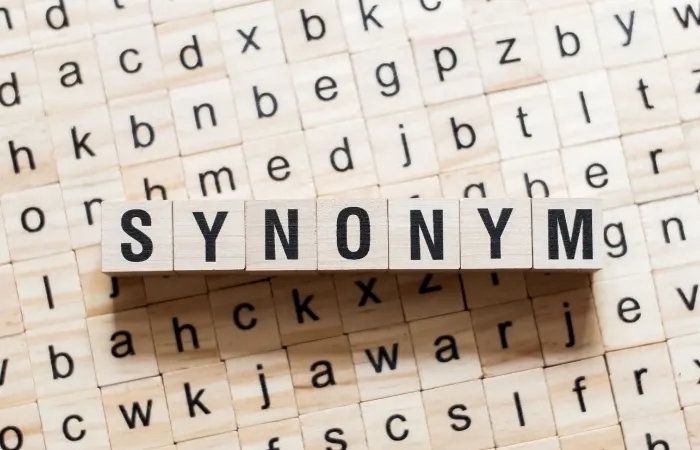
In that case, it’s useful to either look for synonyms that will align perfectly with the space of the melody or rephrase the sentences while retaining the original meaning or imagery behind the lyric.
If you absolutely love it and it’s a great lyric, think how it can potentially become a song’s highlight. You might even change the music in favor of it.
It’s important to be open-minded and adaptable when writing to achieve the best results, so don’t hesitate to try out whatever method feels right.
All cons aside, this approach to writing songs is probably the most common one for people proficient at playing an instrument.
While lyrics are a bit harder to come up with, it provides a strong instrumental basis to build your song idea or even for building the music itself a highlight.
I myself very much enjoy listening to artists who do not prioritize their lyrics at all. The sheer quality of their music outweighs potentially bad lyrics.
But that’s just me.
If you’re one of the people who view lyrics as essential to artistic expression, perhaps you would benefit from turning this method on its head and start with lyrics first.
Starting With Lyrics First

As a young and aspiring guitar player, the idea of accommodating music to lyrics felt wrong.
As I’ve grown older and started to appreciate lyrics as a powerful driving force of the song, I’ve realized that even music can benefit from being in the service of words.
Often you find yourself coming up with a piece of music you would never have otherwise. But the main advantage of this approach for me is coherence.
Having the lyrics written down before you start writing music means that you’ll probably end up with a song that feels more consistent with itself.
This happens because lyric writing will firmly guide your music-making. It’s less likely that you’ll have a mismatch between the feel of a song and the tone of poetry being sung. It also has several other advantages.
Writing Lyrics Can Be Inspiring
First of all, writing lyrics can be much more inspiring for people who are not that proficient in music theory or harmony.
But having a leading lyric idea to guide your instinct can absolutely make up for that.
Let’s say you are after a chord progression that sounds dreamy and melancholic – you might not have a huge vocabulary of chord progressions to tell which one would fit the bill right away.
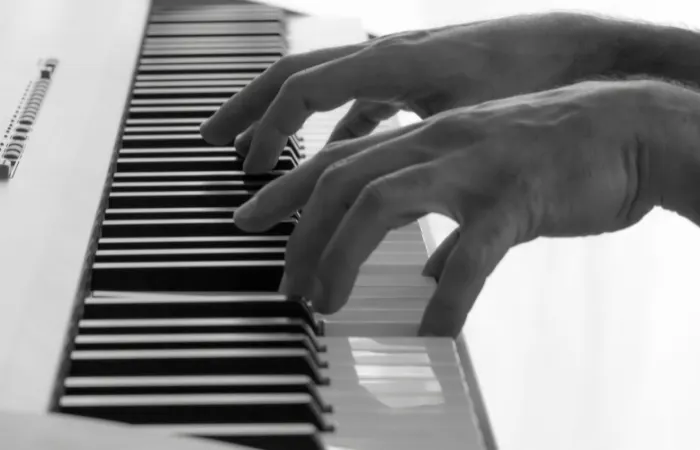
Still, through careful experimentation on your instrument of choice, you’ll eventually get there. The result might turn out to be even better than sticking to conventional music theory.
Secondly, you are more likely to touch your listeners with your art deeply.
It’s presumed that once you commit yourself to make music for the lyrics, those lyrics are actually something you believe in and something that other people can relate to.
As much as music nerds (like me) enjoy flashy guitar solos and drum chops, people who are not musicians (and musicians alike) will react more positively to something they can relate to.
Music is probably the strongest messenger of ideas and coupled with a good one; your song might be the next thing to explode around the globe.
Another advantage of this approach is its potency.
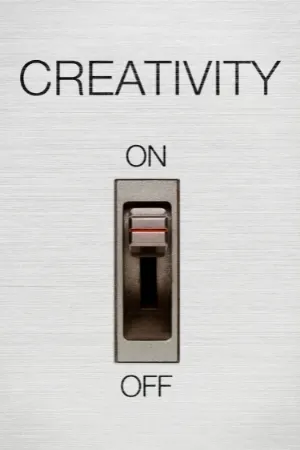
It can serve as an instant “on” switch for our creativity. Instead of noodling around on your instrument and playing random notes until something good comes out of it, you can start to imagine sounds instead.
You might have written a sad or an optimistic lyric. You can ask yourself, “How would sadness or optimism sound like”?
The chances are that at the thought of it, you’ll start imagining something playing in your mind. It might not be something great at first, but it can give you some valuable cues like what instruments to use and which atmosphere is desired.
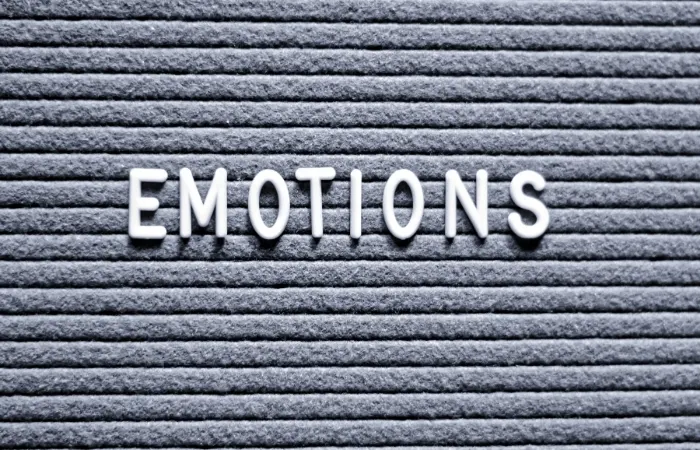
The same principle can be applied on a grander scale – try imagining a feeling and see what comes to your mind.
Let that be the basis for the whole song, not just the music or lyrics. Our minds are much more potent when we start thinking like this instead of focusing our attention solely on musical elements.
You may be surprised by the overall quality of your work this way.
All of this might seem like we’re undermining the importance of music over lyrics, but it doesn’t have to be so.
In fact, we might even find that the music sounds better than ever and that it has greatly benefited from this approach.
Often we get stuck in tried and tested song structures that could become redundant after a while.
Changing our usual way of doing things changing could make our songs and the whole process fresh and much more exciting.
Which Approach Is The One For You?
I would strongly encourage all songwriters to try out both methods and incorporate them interchangeably in their daily writing.
The truth is, you’ll most likely miss out on loads of benefits that each one has to offer.
Having said that, we all have our preferable way of doing things.
Generally, I’d say that people who are used to engaging with music through their instruments will most likely stick to the “music first” approach.
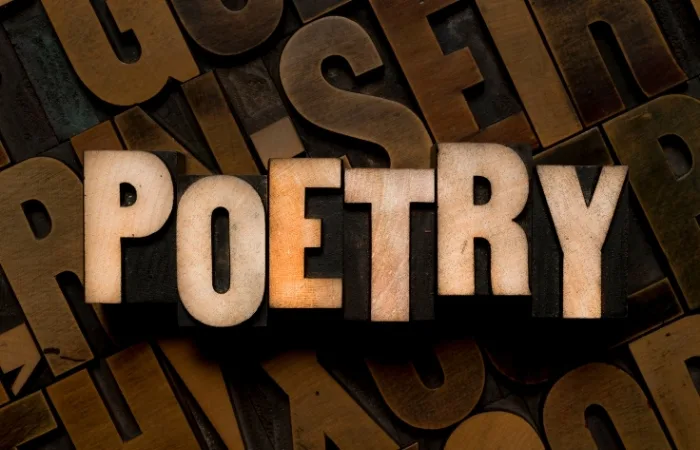
If you enjoy writing poetry, you are likely to write lyrics first.
It all ultimately rests on what you’re trying to achieve with your art.
You can use music to express yourself in various ways. If you’re the kind of an artist with something meaningful and profound to say, writing lyrics first is probably the way to go, as you’ll make it a central part of your expression.
On the other hand, some artists use lyrics only to slightly focus your attention on what they’re trying to express through their music.
It’s also worth taking into consideration to play on your strengths.
If you feel like you lean towards any side of the spectrum, make that part shine in your songs.
Of course, having both great music and lyrics is always the best combo, but there are plenty of examples where one side makes up for the lack of the other.
This should ultimately decide which approach you’ll take, but that shouldn’t stop you from trying to write with both approaches.
It’s wise to follow the trails of whatever inspires you first.
Do You Write Music Or Lyrics First? – FAQ
How can you get some proper ideas for the lyrics?
I’ve found that watching a good movie or reading a book does wonders for my creativity when writing good lyrics. They are a good source of abstract ideas which are so interesting to songwriters. But you can also just read a lot of poetry and your favorite lyricists. They do not necessarily have to be about any particular topic. Sometimes the sheer beauty of the words is enough to make a strong impression on the listener.
What are the basics of songwriting?
I think that songwriting has been the least systematically laid out concept for music, so it’s always a bit difficult to explain the steps necessary to become good at it. But what I think is very helpful is to analyze songs that you think are great. Try to figure out the song structure at first, and then see which chords were used. Then also take a look at lyrics and how they correspond to the vocal melody. After a while, you should get a good grasp of what needs to be done with your own music.
How long does it take to write a song?
Many songwriters say that their best songs came about after very brief writing sessions. But that doesn’t mean that a lot of time spent on a song automatically means an uninspiring one. On a perfect day, you might finish a whole song in a couple of hours, but there are times when you spend days or even weeks.
How do you write a catchy melody?
There’s a lot of mystery surrounding the process behind coming up with a catchy melody hook, but what seems to be clear is that you should aim to target powerful notes in the chord, like a 3rd or a 5th. It also needs to have some repetitive motif that sounds pleasing when repeated multiple times.
Does writing music get easier?
There’s a paradox surrounding the songwriting process – as you get more experienced, it does get easier to write a song, but at the same time, it gets harder to come up with something you haven’t already done before. But generally, I’d say that the process gets easier the more you do it.
Why is song structure such a big deal?
Well, I think it has to do with our innate affinity towards some order. When you have a well-organized song structure, it enhances the aesthetic experience and creates a musical journey for the listener.
Does a songwriter start with the title and write the lyrics, or does he write lyrics first and name the completed song?
I’d say that most of the time, the title is derived from the strongest and most memorable part, usually found in the chorus lyric. This is at least true for most modern pop productions. You can also take the approach of naming a song and writing lyrics to it, but it’s helpful to change the title further down the writing process if a better title can be derived from lyrics.
How do you handle the songwriting process?
Personally, I rely more on the “music first” approach as that’s how I started and always felt more comfortable. However, I’ve tried writing some lyrics first, and the change felt very inspiring. I haven’t written a complete lyric sheet in one go but instead focused on coming up with a strong verse and building the whole song around.
Do you write melody or chords first?
Most of the time, I imagine them together in my mind, but any scenario is possible. I guess the main judge is what sounds more exciting – if the chord progression sounds exciting on its own, I might start from there and build the melody afterward.
Can anybody write a song?
There seems to be a general opinion that you either “have what it takes” or you don’t, and there’s nothing you can do about it. Although talent definitely helps a lot, my opinion is that anybody serious enough can master the skill with some effort.
Final Words
There is no one way to approach songwriting that will work for everyone.
As mentioned above, different people will have different methods of doing things, and that’s fine.
Over time you will more than likely develop a style and find the best workflow for you as an artist.

 Want to connect with other music producers for help and guidance?
Want to connect with other music producers for help and guidance?